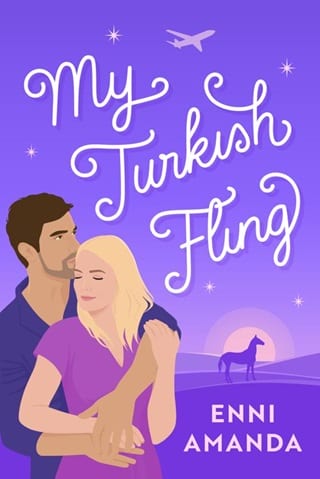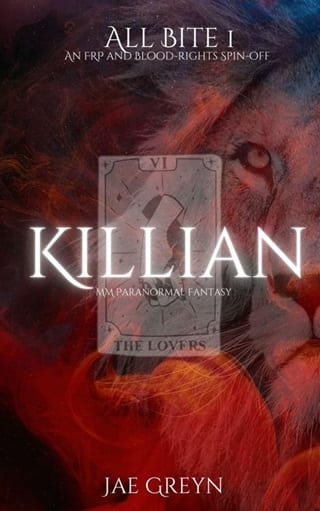Chapter 79
You are right, and your letter to me was—characteristically—full of wisdom and excellent deductions.
S hallan awoke in her past. It was that day. White carpet. It … it …
No.
The vision shifted. She was a child. Hiding in a corner. Crying while her parents shouted at each other.
Hers wasn’t a unique story, she knew. She’d listened over the years, had collected people in her sketchpads. For almost every family like Lopen’s, full of love and happiness, there was one like hers. Where the happy times were the frosting on a dessert, used to cover up the misshapen lump that hadn’t come out of the oven properly.
There had been joy. But so often it had seemed a fabrication carefully constructed to let them pretend. It was hard to remember those good times as she hid there hearing the shouts. As an adult, she sometimes told herself the lie that everything had been wonderful up until her mother’s death; but as with many lies in her life, she had let that one live too long. They offered protection, yes, but they could also hurt.
Mother slammed a door, then footsteps approached. Shallan, feeling so short in this body, peeked out from her room to watch her mother stalk past. A flash of red-and-gold hair. Muttering words. “I can’t be like this. I can’t. I’m not a soldier, I’m a homemaker. This is what I want. This is what I always wanted. I can’t. I can’t. I can’t. I can’t. I can’t. I can’t.”
Shallan ducked away.
So, Veil said. How do we face this? Now that we remember?
Should we go after her? Radiant asked.
Shallan steeled herself, and did not follow—but storms, it was another step forward. She didn’t look away, didn’t dodge the question. That was her mother.
I’m almost ready, she acknowledged to them. But we need to find a vision where I’m an adult.
Agreed, Veil said. For now, accept the memories.
In a child’s body, Shallan dried her tears and went skulking through the corridors of the manor house. Father hadn’t often devolved to physical abuse yet, but he shouted at the servants, itching for a fight. So she veered away from him and crept under the steps, where he never looked.
Her brothers huddled in here. All but Helaran, the eldest, whom Kaladin would someday kill. Jushu wiped his eyes. Wikim pretended he hadn’t been afraid. Balat was a mound in the darkness, not glancing toward them.
Shallan took a diamond chip from her pocket, then she began telling them a story. The elder her was in this body, experiencing these things, but unlike the other visions, she simply let it happen. That was possible, she felt, only because this was her past, and a piece of her remembered what to do.
She lived the memory as if she were riding on the wind.
Because this wasn’t frosting. This memory was authentic joy. The looks her brothers gave as she ignored her own pain and fear and told them a tale she’d imagined, the tale of a little axehound who explored the world. Seeing grand cities, eventually being mistaken for a king and crowned. It was silly and made little sense, which was part of the charm. Besides, when you’re starving, bread is a feast.
Balat turned away from the wall and smiled. Jushu began to help her make up ideas. Wikim stopped pretending to be strong, and allowed himself to be a wide-eyed little boy loving the story. Together they spun a yarn that pushed back the shadows and the darkness. Together, despite parents who seemed not to care, they became a family anyway.
Later, after Father had time to cool down and Mother was acting like herself again, they slipped out. Each brother hugged her, and they agreed to go about their chores without being asked. That night, while tidying her room, Shallan found a strange spiral pattern on the wall. Drawn to her by her lies—but not just any lies. Like all Cryptics, Testament had come seeking the most wonderful lies. The contradictions that made humans able to function.
Stories. Specifically, the one she’d told herself: the performance that she was happy and strong and not terrified.
A lie that made it possible to shine when all the world was dark.
Renarin remembered this day.
He was in the body of his younger self, sitting at a feast. The fires burned high in the hearths—a frightful, menacing light, full of dancing flamespren. Even with proper flues, the huge fires made the room smell of char and smoke. That scent would linger on his clothing; he’d pick up a jacket that looked clean, then would carry the ghost of the bonfire all day long.
Around this time, in his youth, the Kholins had started practicing to be more refined. King Gavilar had become less a soldier and more a politician—and he’d moved the fires from open bonfires into hearths with iron grates. Renarin noted who in the grand hall appeared to enjoy the fire, and who kept their distance. The distinction fascinated him.
He sat at the children’s table, where boys and girls still sat together, though he was the tallest one there. He should have moved on, but staying seemed to delay decisions. Seemed to make things more comfortable. Whether it actually did either was debatable, the older him now realized. It certainly looked odd for the youth with the beginnings of a mustache—though he ignored it—to be sitting with kids three years younger than him.
Renarin had never known a divided Alethkar. He’d been born into a united kingdom, son of the mighty general who had forged it. Yet many people remembered the time before unification—and today was when Renarin had realized his father’s prominence would not always protect him. After the second course, Renarin had gotten up to find the privy. He did so again now, slipping from the feast hall, playing with the buttons on his sleeve—and there encountered the older boys.
He remembered jumping in surprise at that, though today he expected them: standing there in the hallway, passing around a bit of firemoss. They wore fine clothing; the sons of the elites who, seeing the winds turning, had joined with Gavilar. These boys didn’t remember the old kingdom, but their parents did—and their thoughts had a way of seeping into the children, like ink through too-thin paper. A metaphor that made him smile, as he would never have considered it before learning to write.
As he walked past the boys, they followed, taunting him. He stopped, then turned, and the elder him saw something new he’d missed when younger. Those nervous postures, the way the boys kept glancing to one another, feeding their actions with nods? These boys … they were afraid.
They surrounded him, shoved him up against the wall, as in this vision he wore the body of a child. They demanded to know if he thought he was better than they were. Now, he realized they were testing limits. In their eyes, Dalinar must be ashamed of his youngest son, to make him sit at the children’s table, to refuse him training with the sword. They wanted to see how far they could push that.
“I remember you,” Renarin whispered. “I will remember this for a long, long time.”
They frowned, as that hadn’t been the expected response. Yes, he remembered this day. It had been one among many mounting days that had made him realize he didn’t understand people. He’d been so completely baffled, so ashamed. Why would his friends—people he perceived as his friends—treat him this way? Where had these sudden emotions come from? What had he done wrong, and could he be sure to never do it again?
He wasn’t that boy any longer.
Renarin swept the legs from under the lead boy, knocking his head on the floor. Zahel hadn’t taught Renarin much hand-to-hand, but this move was one he’d claimed was essential. So many situations became so much more manageable when the other fellow was on the ground.
The other boys froze for a moment, then one shoved Renarin against the wall once more while another helped their fallen friend. Renarin suffered it, examining how he felt. He hoped that fighting back would give him catharsis … but no. This was merely a vision. Nothing here meant anything. Beyond that, he was Radiant now. He was supposed to be better than this.
He braced himself to take a punch or two, but then Adolin—as had happened in the original experience—ran up. Dear, earnest Adolin, shouting, trailing pools of angerspren. Four boys, and just one Adolin, but they were frightened of him. He carried a sword, but didn’t need to use it as he got in the face of the leader of the band—the eldest boy, who was Adolin’s age—and threatened a duel.
And storms, Renarin loved him for it. He didn’t need saving as he once had, but he remembered how it felt when Adolin had shown up. Like a hero from some story, arriving at the first break in the clouds after a highstorm. And young Renarin hadn’t realized these boys would never actually injure him. He’d been afraid for his life.
Adolin Kholin had been protecting the weak since he could walk. Strange, that Renarin was now the knight.
Is this why you wanted to train and become a soldier? Glys asked. Because you wanted to be like him?
“No,” Renarin whispered. “I wanted to not need him.”
You were just thinking of how you love the way he helped.
“I do,” Renarin said as the boys ran off. “But I don’t want to have to rely on him, Glys. All my life, I’ve needed the help of others in a way my father and my brother never did. I like to think that has taught me a thing or two, but storms … this day. This storming day.”
What will this day do to the young you?
“Show me that I can’t trust people,” Renarin said. “Because I can’t read them. For years I was afraid that every friend would turn out to secretly hate me. Afraid that if I had to fight, my blood sickness would leave me incapable. So when I had a chance to be a soldier, to wear Plate at last, I took it.”
Adolin turned to him and asked if he was all right, promising to teach the boys a lesson. He would. Adolin was already a rising star as a duelist, and soon all would know that if anyone treated Renarin poorly, they could expect a challenge.
Renarin would always love his brother for that, and would always quietly resent being unable to do it for himself.
Rlain hummed to the Rhythm of the Lost, because he was here in a vision … with Eshonai.
“We’re losing too many people,” she said, pacing before them in her Shardplate as they met to discuss strategy. They were all in warform, but she towered over them in their seats. “If we continue like this, the humans will wear us down until we’re nothing. An axe with no bite—all handle.”
Outside he could see old Narak, as it would never exist again. Open plateaus with no fortifications. Homes made by listeners out of whatever they could find, augmenting ancient stone buildings overgrown with crem. A high sky, blue, above plateaus like islands.
For a while here, he’d thought it would all work out. Then the humans had refused to leave, and had begun to win.
“What if,” Thude said, “we sent spies among them?”
Eshonai turned on her heel to regard him. She hummed to Appreciation, indicating he should continue.
“We could have someone take dullform,” Thude continued. “It is enough like slaveform that no human will notice.”
“They have enslaved ones serve meals,” Bila said, to Appreciation as well. “Clean. Carry. They are around all the time.”
“It’s true,” Eshonai said. “I saw that in their palace. They ignore us. We’re practically invisible to them.”
“So a spy could get close,” Thude said to Excitement. “He or she could find out where the humans are sending patrols! We could start raiding close to the warcamps again.”
“If we started taking all of the gemhearts,” Harvo said, “perhaps we could starve the humans out.”
“It’s a clever idea, Thude,” Eshonai said to Consideration. “Let’s try sending one at first—maybe to visit that lumber operation upriver—and see how they’re treated. See how long they can stay without being recognized.”
Rlain hadn’t realized how painful this day was to remember. He attuned Tension as he considered what was about to happen. Because Thude volunteered first.
“I could do it myself,” Thude said. “I know the way.”
“Don’t be a fool,” Eshonai said. “What if the humans attack you on sight? We can’t afford to lose your prowess in battle, Thude.”
“Though our food stores would likely thank us if you were gone …” Bila added with a laugh.
Rlain squeezed his eyes shut, and Tension thundered in his mind.
Bila tried to volunteer next, but Thude objected. “I can’t lose you,” he said to her.
Harvo tried, but was deemed too useful to their farming, and was rejected too. Tusa was essential for research.
The room grew quiet.
“I’ll do it,” Rlain said, opening his eyes.
They looked to him, and several seemed to have forgotten he was even in the room. They’d just been talking about how the parshmen were invisible to humans, but they treated him the same way a lot of the time.
He waited for the objections, or at least for someone to say they’d miss him. Instead they all perked up.
“That’s an excellent idea,” Thude said.
“You’re perfect,” Tusa agreed.
Even Harvo, one of his best friends, said nothing. It was still awkward between them—what had happened while Rlain had been in mateform. He didn’t think the others treated him too differently as a result; they thought it was amusing, like most of what happened during mateform.
No, they simply … well, they didn’t know him. They didn’t care to know him. He was always there, but never relevant. The quiet one at the edge of the conversation.
“You don’t currently have a warpair,” Eshonai said. Of them all, only she had ever appeared the least bit hesitant about sending him into danger. Eshonai, however, was also a general—and had to focus on the good of their people. “You are a capable soldier, and can get yourself out if things go poorly. Thank you for the offer, Rlain. I think this will work.”
In the moment, he’d felt proud to be able to offer something other than his knowledge of farming. After this day, he would train to become a spy and infiltrate the humans. But in the subsequent years, things would go wrong. He’d make mistakes, and some humans would realize he could think more clearly than their parshmen. He’d passed useful information along to his people, but not nearly as much as he’d hoped, because the lighteyes always ordered him out when there were important discussions to be had.
Ultimately, he’d ended up in Bridge Four. Where he would think back to this day, this meeting. And he’d hum to Longing as he remembered how not a single one of his friends had spoken up to request he stay.
 Fullepub
Fullepub 



